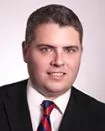In a significant departure from past enforcement practices, the U.S. Department of Justice Antitrust Division (DOJ) recently announced a new focus on prosecuting criminal monopolization cases under Section 2 of the Sherman Act. DOJ has not prosecuted a criminal monopolization case in nearly 50 years. Nonetheless, Division Deputy Assistant Attorney General for Criminal Enforcement Richard Powers has indicated that DOJ has no intention of providing guidance to the business community related to this new focus on criminal prosecutions for monopolization. Businesses will therefore need to redouble efforts to comply with Section 2, despite a "dearth of Section 2 case law addressing modern markets," as Assistant Attorney General Jonathan Kanter, the DOJ's top antitrust enforcer, put it in a January speech to the New York State Bar Association.
Monopolization Under Section 2 of the Sherman Act
Section 2 of the Sherman Act outlaws monopolization. It states:
Every person who shall monopolize, or attempt to monopolize, or combine or conspire with any other person or persons, to monopolize any part of the trade or commerce among the several States, or with foreign nations, shall be deemed guilty of a felony.
The consequences for a company or individual facing an indictment under Section 2 are severe. Criminal violations of the Sherman Act are punishable by up to $100 million in fines for companies and $1 million in fines for individuals, or twice the gross gain or loss from the offense, whichever is greater. Individuals may be sentenced to up to 10 years of imprisonment.
But despite the statute's explicit criminal language and significant penalties, in the modern era, the government has brought only civil cases under Section 2, reserving criminal enforcement for agreements in restraint of trade (e.g., price fixing and bid rigging) under Section 1.
DOJ's Justice Manual, which provides guidance to the department's prosecutors, previously made this distinction explicit, stating that:
While a violation of [the Sherman Act] may be prosecuted as a felony, in general the Department reserves criminal prosecution for "per se" unlawful restraints of trade among competitors, e.g., price fixing, bid rigging, and market allocation agreements.
But following announcements from top antitrust enforcers this past spring, the Justice Manual was changed to read:
While a violation of [the Sherman Act] may be prosecuted as a felony, in general, the Department reserves criminal prosecution under Section 1 for "per se" unlawful restraints of trade among competitors, e.g., price fixing, bid rigging, and market allocation agreements. It may also bring, and has brought, criminal charges under Section 2.
Assistant Attorney General Kanter first signaled the shift in his January speech when he remarked that DOJ would use "every tool available to promote competition." Powers thereafter announced the new policy at the American Bar Association (ABA) White Collar Crime Institute in March. In response to a question at that conference, Powers stated that DOJ is prepared to bring criminal charges under Section 2 "if the facts and the law lead us to the conclusion that a criminal charge based on a Section 2 violation is warranted." Kanter echoed Powers' statement at the April Enforcers' Summit, declaring "if the facts [and] the law, the careful analysis of the department's policies guiding our use of prosecutorial discretion, warrant a criminal Section 2 charge, the Division will not hesitate to enforce the law."
No Plans by DOJ to Issue Industry Guidance
This significant departure from past enforcement practice has led to questions about whether DOJ will issue industry guidance on what conduct DOJ will consider criminal.
At a June 7 webinar sponsored by the ABA Antitrust Section, Powers made clear that DOJ has no plan to issue such guidance, as it has in others areas of antitrust enforcement.2 Rather, Powers stated that the business community should look to the text of Section 2 and the case law on criminal Section 2 cases, despite the fact that the most recent such case law is nearly 50 years old. This echoes prior comments on June 3, 2022, where Powers stated the "long history of Section 2 prosecutions and accompanying case law show us the way forward." These recent statements seem to conflict, however, with Kanter's remarks in January that "there is a dearth of Section 2 case law addressing modern markets."
The Sherman Act was passed in 1890. During the first approximately 80 years of its existence, DOJ pursued criminal Section 2 cases. In his June 7 comments, Powers pointed out that there were more than 100 prosecutions during that time period. But the last such prosecution was in 1977, when DOJ prosecuted two airlines under Sections 1 and 2, under a theory that the airlines conspired to create a monopoly and keep out competitors.
Since that 1977 Braniff Airways prosecution, DOJ has focused its criminal enforcement entirely on per se antitrust violations under Sherman Act Section 1 such as price fixing, bid rigging and market allocation agreements, as reflected in the now-revised section of the Justice Manual quoted above. At the same time, it has prosecuted Section 2 cases solely as civil violations, which yield treble damages but not fines or jail time.
In speeches and comments throughout the past spring, senior antitrust enforcers have expressed a belief that competition enforcement has gone "astray." In particular, Kanter has argued that historic under-enforcement has led to less resiliency in the markets and an erosion of consumer choice that threatens democracy itself. Echoing these sentiments, Powers stated at the June 7 webinar that the lack of Section 2 prosecutions since the 1970s means that anticompetitive conduct by monopolists has "gone unpunished" and that DOJ is determined to reverse this trend and return to the days of vigorous criminal enforcement of Section 2.
Panelists at the June 7 webinar raised several questions about criminal Section 2 cases. Among them were concerns about whether the courts will rely on the criminal Section 2 case law from over 50 years ago, or instead the more recent body of civil Section 2 case law. Civil cases alleging monopolization require the presentation of economic and other experts to prove the relevant product and geographic markets. Conference attendees asked Powers whether DOJ's criminal Section 2 prosecutions will require the same type of proof. If so, the attendees pointed out, those prosecutions will be a lot more difficult than DOJ's price-fixing, bid-rigging and market-division cases, where DOJ's burden is to simply prove the existence of an illegal agreement, because such violations are per se unlawful.
In addition, DOJ's record on Section 2 civil enforcement is mixed. So why is DOJ now planning to revive criminal Section 2 cases-with the higher "beyond a reasonable doubt" burden of proof-when it has had difficulty even proving civil Section 2 violations?
Powers answered these questions by stating that he believed the courts would apply the older criminal cases and not the more recent civil cases, and thus DOJ will not be required to present economic testimony or prove relevant markets. As to why DOJ is pushing into criminal Section 2 cases despite its mixed record in civil cases, Powers simply stated that DOJ has an obligation to enforce the laws that Congress passed.
Lack of Industry Guidance Runs Counter to DOJ's Policy of Transparency
In addition to the antitrust enforcement guidance documents DOJ has issued in other areas (see footnote 2), DOJ has issued guidance regarding its antitrust leniency program-whereby companies that self-report cartel activity can avoid prosecution-in the form of a frequently asked questions (FAQ) page on its website. In explaining recent revisions to the FAQs at the April Spring Enforcers Summit, Kanter stated the following:
Just as important as the changes to the policy is the division's commitment to making that policy transparent, predictable, and accessible to the public. .
I want to emphasize that we are focused on making our policies intelligible to all: outside counsel, in-house counsel, and businesspeople in all sectors of the economy and at all levels of sophistication. There are no unwritten rules to enforcement at the Antitrust Division. We make our enforcement decisions based on transparent and predictable criteria.
In light of this dramatic shift in criminal Section 2 enforcement policy, and with no recent enforcement history to draw from, it is difficult to determine the "transparent and predictable criteria" DOJ will use in determining what conduct will be subject to criminal prosecution for monopolization. It is one thing for companies and executives to be unclear on what conduct will subject them to a civil enforcement action and potential damages, but quite another to not know what conduct could lead to a corporate indictment, criminal fines and jail terms for executives. In short, the stakes are higher now than they have been in decades.
And as several of the panelists at the June 7 ABA webinar pointed out, guidance would be helpful not only to the business community, but also to the courts. An example is the DOJ/FTC Horizontal Merger Guidelines-while they do not have the force of law, courts often rely upon them in deciding whether a proposed merger is likely to lead to a substantial lessening of competition in violation of Section 7 of the Clayton Act. A guidance document regarding criminal Section 2 enforcement could have a similar benefit to courts that will be grappling with such prosecutions with no recent case law to guide their analysis.
Conclusion
DOJ is clearly signaling that it is moving forward on bringing criminal Section 2 cases. Such investigations are time-consuming, so we should not be surprised if it takes many months or even years before the first prosecution. Powers' advice to companies at the June 7 webinar-not to wait for DOJ to bring cases, but instead to invest in robust and effective compliance programs now-is worth heeding.
DOJ is likely to hear pleas from some in the antitrust community for industry guidance on the new policy. Whether DOJ heeds these calls remains to be seen. Without a guidance document from DOJ, businesses and their executives that could potentially be subject to a criminal Section 2 prosecution will need to take extra precautions and avoid conduct that could be considered predatory or exclusionary toward a competitor. And whether or not guidance is issued, companies and individuals should consult with experienced antitrust counsel to help them navigate this rapidly shifting terrain.
Footnotes
1. Justice Manual, Section 7-2.200 (emphasis added).
2. Examples of other areas of antitrust enforcement where DOJ has issued guidance include the FTC/DOJ Statements of Antitrust Enforcement Policy in Health Care (1996); the FTC/DOJ Horizontal Merger Guidelines (last revised in 1997); the FTC/DOJ Antitrust Guidelines on Competitor Collaborations (2000); the FTC/DOJ Antitrust Guidance for Human Resources Professionals (2016); the FTC/DOJ Antitrust Guidelines for the Licensing of Intellectual Property (2017); and the FTC/DOJ Vertical Merger Guidelines (2020, withdrawn by the FTC in 2021).
For More Information
If you have any questions about this Alert, please contact Christopher H. Casey, Melissa S. Geller, Sean P. McConnell, Brian H. Pandya, any of the attorneys in our Antitrust and Competition Group or the attorney in the firm with whom you are regularly in contact.
Disclaimer: This Alert has been prepared and published for informational purposes only and is not offered, nor should be construed, as legal advice. For more information, please see the firm's full disclaimer.



